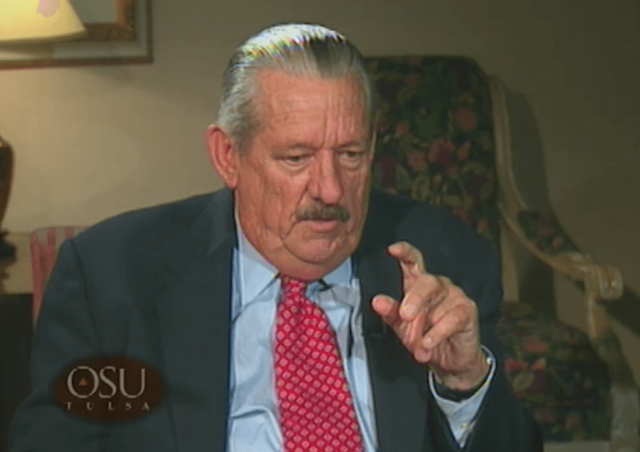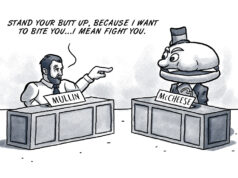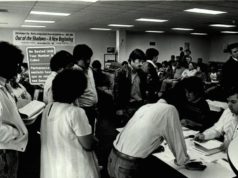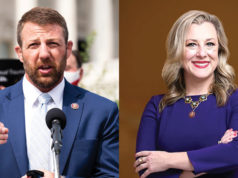
Just before the end of the year, Politico ran a feature profile of Oklahoma-born politician Fred Harris.
For those unfamiliar with the Cotton County native, Harris managed to defeat Republican candidate and Sooner football royalty Bud Wilkinson in a 1964 U.S. Senate election to succeed the late Robert S. Kerr.
Harris then made unsuccessful runs for president in 1972 and 1976. In the latter campaign, he traveled the country in a Winnebago and stayed overnight with constituents who were kind enough to host him as a guest in their homes. In return, such hosts would receive IOUs for an overnight stay in the White House should Harris win.
Of course, Harris failed to win, and eventually he became a professor at the University of New Mexico and the author of several books.
‘Fragmented action for exactly the same goals’
The Politico article unearths Harris as an original champion of populism in contrast to POTUS-elect Donald Trump’s brand of “populism.”
Harris’ political platform for his second run at the presidency was centered largely on economic democracy. Oddly, parts of this concept, which posits that the government should provide “fair distribution of wealth and income and power” as Harris was quoted as saying in 1976, appeared (partly) in the recent campaigns of Sen. Bernie Sanders and Trump.
But where Sanders and Trump each had fingers pointing across the aisle in accusatory divisiveness, Harris sees greater potential in a populism that brings together like-minded groups from within the Left to coalesce into a unified front.
From the Politico article:
Over the past month, as the reality of Trump’s victory has sunk in, Fred has been bombarded with fundraising solicitations from some of the many disparate grass-roots progressive groups, including Bernie Sanders’ Our Revolution, MoveOn.org, Progressive Democrats for America, Democracy for America, the Campaign for America’s Future and Barack Obama’s Organizing for Action.
“It seems to me, if somehow they could all merge, or even merge into the Democratic Party, you’d really have something. That’s what needs to be done. I’ve been thinking about talking to Elizabeth Warren and Sherrod Brown and some others about doing it. These groups have the same goals and platforms that the Democratic Party now has. It’s such a damn shame to have all this fragmented action for exactly the same goals.”
What would that look like?
The Politico article also notes that Harris was born relatively shortly after the Green Corn Rebellion of 1917. The rebellion largely protested against World War I and the ensuing draft in three counties along the South Canadian River, but it tapped into an existing dissent and resentment among disenfranchised farmers, African Americans and Native Americans.
We’ve seen modern-day manifestations of populist revolt in the Occupy movement, but that cause lacked the cohesion and focus of a successful revolution.
But what would a successful manifestation of populist uprising look like in 21st-century Oklahoma? What, who and how would a “Green Corn 2017” support and take action? The disenfranchisement is certainly there (*cough* budget crisis *cough*), but any nascent populist uprising in the state lacks the cohesion and unified front of a readily discernible opposition.
For example, the OKC-based grassroots Let’s Fix This seeks to educate and communicate with the voting populace about ongoing issues that affect them in a general sense. Also, the #oklaed contingency of social media is a loose amalgamation of educators, administrators, parents and others with a vested interest in Oklahoma’s education landscape. Both groups claim to be nonpartisan. Meanwhile, in Tulsa, there’s We the People Oklahoma, which pitches a large tent under the moniker of community activists.
So the disenfranchisement is there, citizen-led groups are already banding together, and technology is making it easier for ideas and support to coalesce through social media. Perhaps we just need someone like Fred Harris to gel these disenfranchised, populist elements together.
Maybe someone can create a Kickstarter to purchase him a new RV.





















